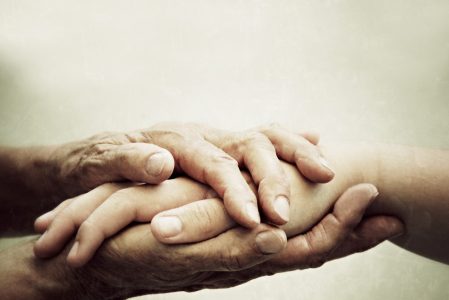When the water in the skin was gone, she cast the child under one of the bushes. Then she went and sat down opposite him a good way off, about the distance of a bowshot; for she said, “Do not let me look on the death of the child.” And as she sat opposite him, she lifted up her voice and wept. And God heard the voice of the boy; and the angel of God called to Hagar from heaven, and said to her, “What troubles you, Hagar? Do not be afraid; for God has heard the voice of the boy where he is. Come, lift up the boy and hold him fast with your hand, for I will make a great nation of him.” Then God opened her eyes and she saw a well of water. She went, and filled the skin with water, and gave the boy a drink. (Genesis 21:15—19)
Take a Moment to Ponder
In the passage from Genesis 21: 8—21 we find a horrid tale of Hagar and her son Ishmael, being rendered non-entities by Abraham and Sarah who were people with power and privilege. But even as they rendered such by the powerful and privileged, they were significant in the sight of God.
In the text we see God coming to the aide of this enslaved and disposed woman and her ‘bastard’ child. God rescued them from the injustice that was meted out to them, by those who were their masters. God delivered them from the barrenness of the wilderness into which they were cast. God lifted them from the clutches of death to which they were sentenced by the powerful.
This casting out of Hager and her son was as a result of Sarah’s fear of losing her pride of place and wealth. The desire to protect wealth led her to hate and despised Hagar and Ishmael, for no good reason. But Sarah was not the only one who abused her power in dealing with Hagar, for her husband’s abdication of his responsibility to protect this powerless woman led to the exploitation in the first place. He went along with the trampling of the humanity of Hagar, without standing up to Sarah, who was the instigator of the exploitation. I know it is hard for us to hear these passages in the light that I have framed it, because after all, God chose Abraham and Sarah. They were there to bring forth a people that would be agents of reconciling the world to God. They in the annals of the faith are righteous people. And while that might be true, even so-called righteous people can do unjust things. In the wider scheme of the Judeo-Christian narrative, they are indeed fore-parents of a holy people, but it does not make the act they committed any less atrocious. What we see more than anything else in this passage is that human beings are not immune to being agents of discrimination, oppression, and injustice. God is the one who opposes such things and lifts up those who face such things. When Sarah and Abraham became forces of oppression of the dispossess—Hagar and Ishmael, God stepped in and lifted them up.
This passage more than anything else is about God’s action, God’s compassionate care and concern for people who are poor, marginalised, and oppressed. And we see the same kind of action in Jesus the Christ. He is always reaching out to the poor. He is always standing with those on the margins of society. He is always showing compassion to the powerless, to those who are cast out and have no voice. And in doing so, Jesus would bring those on the outside in the embrace of God. Even when the establishment with all the power and privilege opposed him. And that is an indication to us who are and who wish to be followers of Jesus the Christ. We must become people, who like God in Jesus Christ stands on the side of the poor. And if we who call upon the name of the Lord and invoke the power of God, stand with the poor, then we will create a world that is more just, more equitable, less worried about personal possessions and give more credence to the common good.
Take Action
- Take a moment to reflect on whether in your daily life, you neglect and mistreat the poor and oppressed?
- Reflect on what ways you can contribute to making someone else’s life easier?
- Think of ways in which you can help to end cycles of discrimination and exploitation of others?
A Moment in Prayer
God of the poor, friend of the weak, give me compassion I pray. Melt my cold heart, to repent of my evil ways, come change my love from a spark to a flame, so that I may follow the example of Jesus Christ my Lord, to care for the poor, the oppressed and marginalised. This I pray through him who loves us beyond all measure, Jesus Christ my Saviour. Amen.
Contributed by Rev Garfield Campbell

